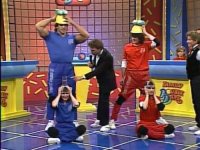Milo_Grigsby
Story Teller
- Joined
- Jun 9, 2023
- Posts
- 66
I am working on a novella length non-erotic adventure/romance story that is written in 3rd person, present tense. As I am crafting it I feel like it is almost like a screenplay, dominated by dialog and description of the settings and actions of the characters. This is an interesting and somewhat challenging experience for me because so much of my writing is 1st person (with varying tense) featuring the thoughts and emotions of the MC. In this story I am trying hard not to write about any of the emotions (except to describe the physical manifestations) or motivations of the characters and leave that up to the reader to infer.
What are your reactions to stories like this as a reader?
What are your reactions to stories like this as a reader?

